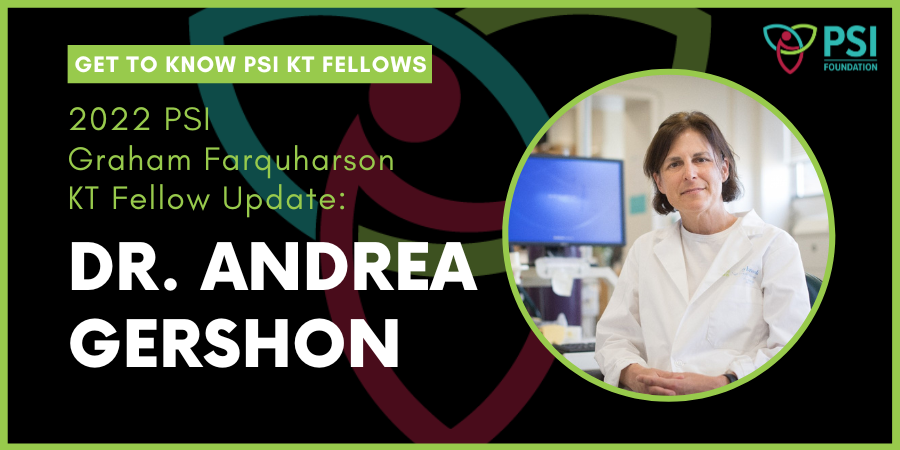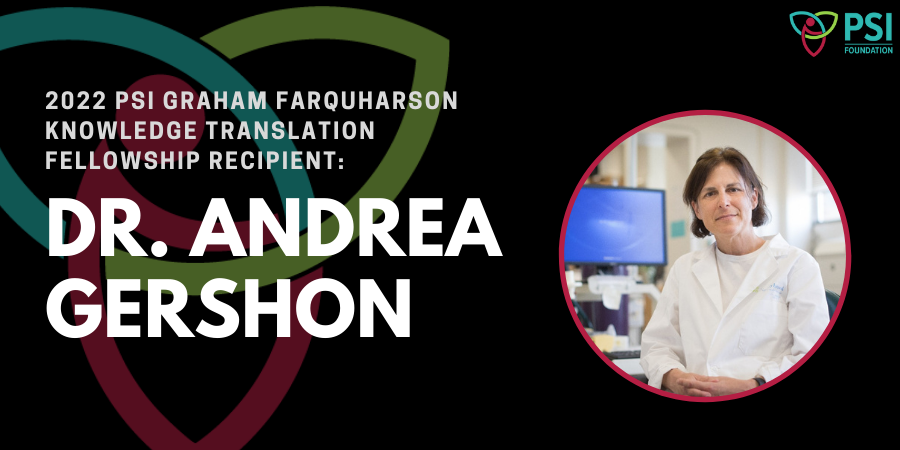Once our PSI Knowledge Translation (KT) Fellows take off from the starting line, they make strides as they move their knowledge translation activities and research program forward. As the finish line becomes clearer in their sight, we asked our fellows some questions to share their progress thus far, and what they look forward to in the remainder of their KT Fellowship.
What are some of your accomplishments from the KT Fellowship thus far?
I have held my PSI Fellowship for 2 years now. It has allowed me to continue my research program. Some of my accomplishments in the last two years have been:
- Supporting trainees: during this time, I have supervised 3 Master’s students, 4 PhD students, 3 medical residents and 4 postdoc fellows. I have co-supervised a number of others.
- Mentorship: I have had the privilege to mentor several new investigators from across Canada
- High impact publications in the European Respiratory Journal, CMAJ, Chest and Thorax
- Opportunities to transfer our knowledge to action working with the Government of Ontario, the Canadian Thoracic Society and the Lung Foundation.
Please describe any challenges/barriers that you have encountered thus far and what actions were/will be taken to resolve them?
A challenge has been hiring qualified research personnel. We have been able to resolve this, but it caused delays.
What are some items/deliverables that you look forward to coming to fruition in the remainder of your KT Fellowship?
I look forward to seeing the results of our national, multicentre study on Respiratory Long COVID. Long COVID is a persistence of symptoms from acute COVID infection beyond 12 weeks that is not attributed to alternate diagnoses. Studies of Long COVID have been mostly limited to people requiring hospitalization, leaving little known about its impact on the 93% of Canadians managed as outpatients. They have also used convenience samples, small samples and/or single study locations. We have recruited a random sample of over 500 participants from the community who have had COVID to better characterize respiratory Long COVID in the population.
What are some things that surprised you during your fellowship thus far?
Not surprised, but impressed by the greater access to data there seems to be now compared to just a few years ago. Many of my studies use large databases of people with respiratory disease. Just a few years ago, it was very difficult to access large databases because of privacy and security concerns. While this is still the situation when accessing Ontario health administrative data, it seems that it is becoming easier to access anonymized data from other sources. I think this is a great trend.


